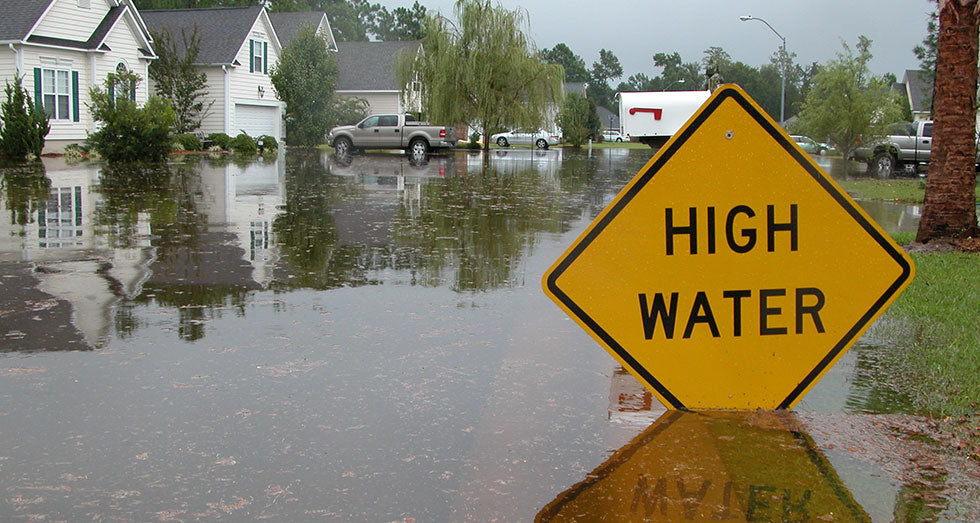According to FEMA, "Floods are one of the most common hazards in the United States. Flood effects can be local, impacting a neighborhood or community, or very large, affecting entire river basins and multiple states...Every state is at risk from this hazard."
This begs the question: What should I do before a flood?

How to Plan
No one can stop a flood, but if you are faced with one, there are actions you can take to protect your family and keep your property losses to a minimum.
The most important thing is to make sure your family is safe.
BEFORE A FLOOD
- Keep a battery-powered radio tuned to a local station, and follow emergency instructions.
- If the waters start to rise inside your house before you have evacuated, retreat to the second floor, the attic, and if necessary, the roof. Take dry clothing, a flashlight and a portable radio with you. Then, wait for help. Don't try to swim to safety; wait for rescuers to come to you.
- Buy Flood Insurance to financially protect your home and family before a flood is to purchase a flood insurance policy. You can obtain one through your insurance company or agent. Flood insurance is guaranteed through the National Flood Insurance Program (NFIP), administered by the Federal Emergency Management Agency. Your homeowners insurance does not cover flood damage. Don't wait until a flood is coming to purchase your policy. It normally takes 30 days after purchase for a flood insurance policy to go into effect.
If time permits, here are other steps that you can take before the flood waters come
- Turn off all utilities at the main power switch and close the main gas valve if evacuation appears necessary.
- Move valuables such as photos, papers, anything irreplaceable, and needed clothing to upper floors or higher elevations.
- Fill bathtubs, sinks and plastic soda bottles with clean water. If time permits, sanitize the sinks and tubs first by using bleach. Rinse and then fill with clean water.
- Bring in outdoor possessions such as lawn furniture, grills and trash cans inside, or tie them down securely.

ONCE THE FLOOD ARRIVES
- Do not drive through a flooded area. If you come upon a flooded road, turn around and go another way. More people drown in their cars than anywhere else.
- Do not walk through flooded areas. As little as six inches of moving water can knock you off your feet.
- Stay away from downed power lines and electrical wires. Electrocution is another major source of deaths in floods. Electric current passes easily through water.
- Look out for animals - especially snakes. Animals lose their homes in floods, too. They may seek shelter in yours.

AFTER THE FLOOD
- If your home, apartment or business has suffered damage, call the insurance company or agent who handles your flood insurance policy right away to file a claim.
- Before entering a building, check for structural damage. Don't go in if there is any chance of the building collapsing.
- Upon entering the building, do not use matches, cigarette lighters or any other open flames, since gas may be trapped inside. Instead, use a flashlight or a lightstick to light your way.
- Keep power off until an electrician has inspected your system for safety.
- Flood waters can pick up sewage and chemicals from roads, farms and factories.
If your home has been flooded, protect your family's health by cleaning up your house right away. Throw out foods and medicines that may have come into contact with flood water.
- Until local authorities proclaim your water supply to be safe, boil water for drinking and food preparation vigorously for five minutes before using.
- Be careful walking around. After a flood, steps and floors are often slippery with mud and covered with debris, including nails and broken glass.
- Take steps to reduce your risk of future floods. Make sure to follow local building codes and ordinances when rebuilding, and use flood-resistant materials and techniques to protect yourself and your property from future flood damage.


1 comment
BadGlue
some of your n95 particle masks were used during flood cleanup while removing the flooded contents of neighbor's homes in the Nashville area.
they worked great, thanks